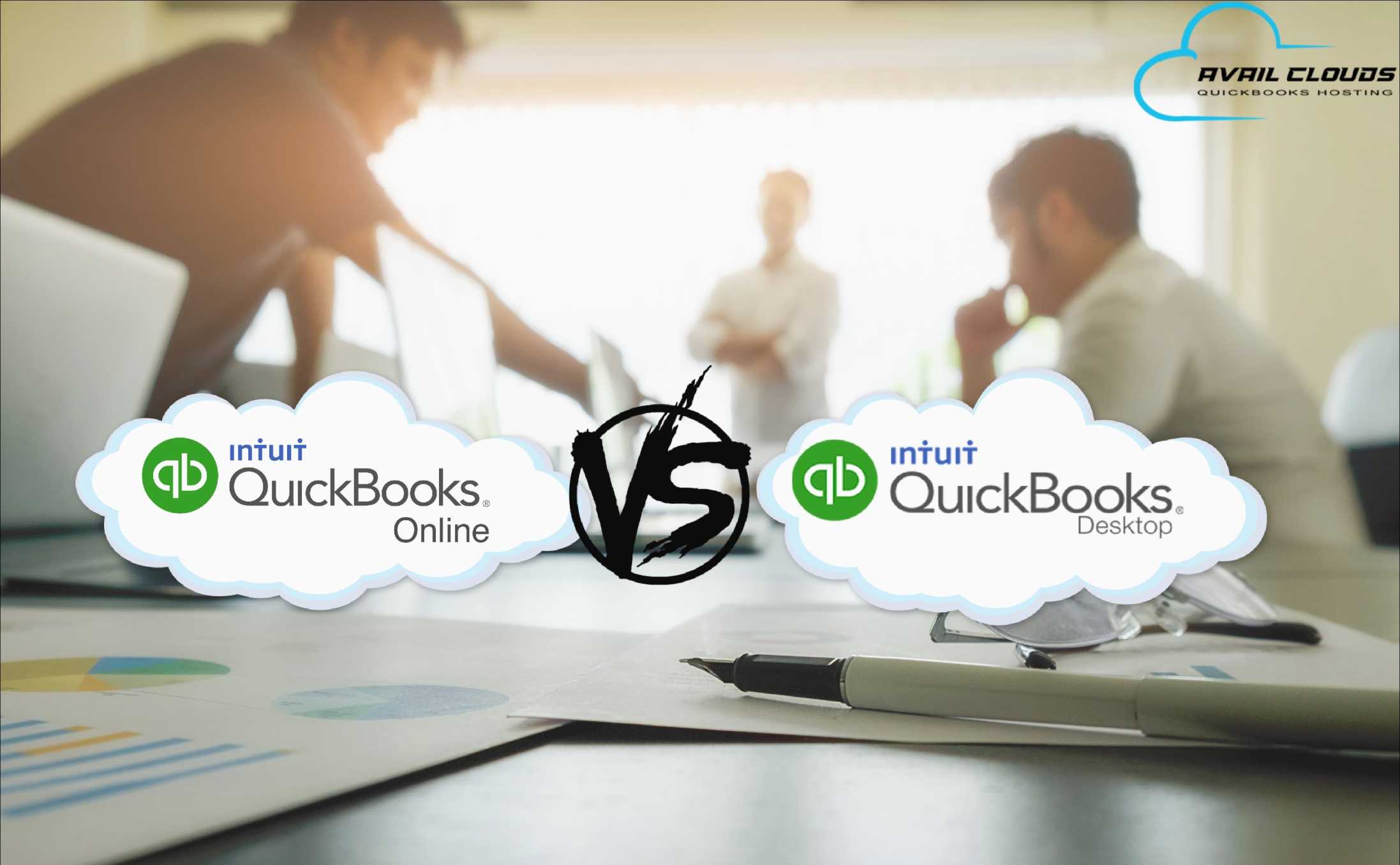You should know the difference between QuickBooks Cloud and QuickBooks Desktop

QuickBooks is the ultimate premium accounting application widely available for all users across multiple industries. If you have been an active part of any business, you already know how the enterprises have traditionally used every feature of this application for the last few years. But given the tremendous growth and expansion of cloud computing facilities, no doubt that there has been a massive change in the accounting industry.
So, if you are thinking about switching to QuickBooks shortly, you need to understand which one would be appropriate for your business: QuickBooks Cloud or QuickBooks Desktop? Although both offer you a plethora of benefits and features, there are still striking differences between them. Learning about these differences will help you make the proper selection per your business’s requirements.
So, how do you get started? You might have already seen many companies switching to the QB Desktop setup or resorting to the third-party QuickBooks Cloud solution for multiple reasons. However, the real question is, which one will bring more profits to your company? To understand this, it is essential to get a thorough comparison between the two setups with their key configurations and features.
Accessibility
Let’s get started with the accessibility aspect of both these setups. Both the QB Cloud and Desktop offer different accessible features. The desktop is known for being accessible from any particular device you need to install the QuickBooks application.
However, as you already understand, the scenario differs slightly in the case of the Cloud. For the Cloud, the users can access the app from almost anywhere, anytime, provided they have a valid and robust internet connection and authorization. Work remotely freely from anywhere to get access to your QB data.
Data Security
Data is driving every enterprise across the globe. So, most organizations often worry about losing data and sensitive information to thefts and cyber frauds. However, companies are still using conventional desktops with outdated security modules which lack the basic modern infrastructure and anti-hacking features.
Getting such protection tools is necessary for every business that wishes to provide the ultimate security to their financial data. With the QB hosting, you get the reputed QuickBooks provider responsible for deploying high-quality security measures like malware scans,256-bit bank-grade encryption, IDPS software, antivirus software, AI monitoring, and more.
Pricing
Another critical aspect to consider while making your selection between Cloud and Desktop is their pricing structure. For the Cloud, a selection of price rates are available starting from just $10/month. But the features and the rates seem to vary; hence, it is essential to double-check both aspects before making the final choice.
In the case of the desktop, it required appropriate financial resources to get the proper components. In addition, to get the best functionalities of the QB desktop, your company needs to hire IT professionals who are well-versed with the application.
Also, you need to buy or rent proper office space and provide regular IT maintenance facilities. As you already understood, these are pretty hefty investments that you no longer have to bear with the Cloud, as all you need is a subscription to enjoy the benefits. Furthermore, as it is remotely accessible, you can now shift to any location and get access to the data without any issues.
User Collaboration
Did you know that collaborating using the traditional QB Desktop needs redundant and repeated exchange of edited files and data? The entire process is time-consuming and tiring as well. Also, it occupies a lot of space while creating confusion among the users. On the other hand, the entire Cloud services make it seamless and easier for the users to share data and standard files, almost from anywhere, without consuming a lot of space or time.
Maintenance & Scalability
QuickBooks Cloud offers a flexible scale-up option while offering easy ways to save money and other resources. Of course, you have to give a QuickBooks cloud hosting service provider a call and get the computational resources within a few hours. But in the case of the desktop, you also need to invest a lot of time and resources.
How can you not consider IT maintenance services when it comes to such setups? Having a QB desktop infrastructure means you must fulfill all the maintenance liabilities. It can require a lot of money, time, and other resources. But it is slightly different for the Cloud as you can focus on your pending projects rather than maintaining any infrastructure for the QB cloud.
Disaster recovery
Traditional desktops will always come with significant risks as you are susceptible to permanent data loss. It can occur due to multiple reasons, including artificial and environmental factors. But the, with the QB cloud, you never have to worry about losing data and sensitive information to disasters. Your data center will be interconnected and placed as per the layouts to minimize the overall impact, making it ideal for the company to sustain any loss, even in unwanted disasters.
Finally,
These are a few points to consider while selecting the QB cloud and desktop. One significant point to observe about both these applications is that the QB desktop can support only a handful of add-ons while the QB cloud can do wonders in this regard. Eventually, if you need a solution to amplify your profits, it is none other than the QB cloud. So, which one of these two will you choose for your enterprise?

